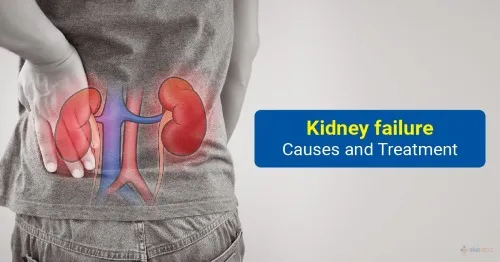When the kidneys are compromised due to conditions like chronic kidney disease (CKD), kidney stones, or kidney infections, prompt and effective treatment is essential to prevent further complications. Here, we explore some of the key treatments available for maintaining kidney health and managing kidney-related conditions.

Lifestyle Modifications: The First Line of Defense
One of the most fundamental approaches to treating and managing kidney issues is adopting a healthier lifestyle. For individuals with early-stage CKD or those at risk, dietary changes are often recommended. A kidney-friendly diet typically involves reducing sodium, phosphorus, and potassium intake to prevent further strain on the kidneys. Protein consumption may also be limited, as excessive protein can increase the kidneys' workload.
Regular exercise, maintaining a healthy weight, and avoiding smoking and excessive alcohol consumption are also crucial in managing kidney health. Staying hydrated is particularly important for preventing kidney stones, as it helps flush out substances that can form crystals in the kidneys.
Medications: Managing Symptoms and Slowing Disease Progression
In cases of CKD, medications are often prescribed to control symptoms and slow disease progression. Blood pressure-lowering medications, such as ACE inhibitors or ARBs, are commonly used, as high blood pressure is both a cause and a consequence of kidney disease. Managing blood pressure helps protect the kidneys from further damage.
For patients with kidney stones, medications may be prescribed to manage pain, prevent infection, or dissolve certain types of stones. If kidney function is compromised, medications that help manage blood sugar levels, lower cholesterol, or treat anemia might also be part of the treatment plan.
Dialysis: A Lifesaving Intervention
When kidney function declines significantly, dialysis may become necessary. Dialysis is a treatment that performs the essential functions of the kidneys by removing waste products and excess fluids from the blood. There are two main types of dialysis: hemodialysis and peritoneal dialysis.
- Hemodialysis: Involves using a machine to filter the blood outside the body. This procedure is typically performed at a dialysis center several times a week, although home options are available.
- Peritoneal Dialysis: Utilizes the lining of the abdomen (peritoneum) to filter blood. A cleansing fluid is introduced into the abdomen through a catheter, where it absorbs waste products and is then drained away. This method can often be done at home.
While dialysis is a crucial treatment for those with advanced kidney disease, it requires a significant lifestyle adjustment and careful management of diet and fluid intake.
Kidney Transplant: A Potential Cure
For those with end-stage kidney disease, a kidney transplant may be the best option. This procedure involves surgically placing a healthy kidney from a donor into the patient’s body. A successful transplant can restore normal kidney function and eliminate the need for dialysis. However, finding a suitable donor and the risks associated with surgery and lifelong immunosuppressive medications must be carefully considered.
Preventive Care and Regular Monitoring
Preventive care is key to managing kidney health. Regular check-ups, especially for individuals at risk of kidney disease, can help detect issues early when they are most treatable. Monitoring blood pressure, blood sugar levels, and kidney function tests are essential components of preventive care.
It's also important to be aware of the symptoms of kidney problems, such as swelling in the legs and feet, changes in urination, fatigue, and unexplained weight loss. Early intervention can significantly improve outcomes.
Alternative and Complementary Therapies
Some patients may explore alternative or complementary therapies to support kidney health. These might include herbal supplements, acupuncture, or specialized diets. While some of these approaches can be beneficial, they should always be used in conjunction with conventional treatments and under the guidance of a healthcare professional.
